Planning a Miami Field Trip
The Deering Estate Education department offers a variety of On-Site Field Study Trips where students can learn, through engaging hands-on minds-on activities at the Deering Estate, about South Florida’s rich cultural and natural resources.
Field Trip Details
These Field Trips place a focus on topics such as scientific method, archaeology, ecology, biology, marine science, and earth science. All of our Field Study Trips include web-based pre and post activity guides, interactive tours, and on-site projects. Field Study Trips are connected with Florida State Standards and can be modified to fit you and your students’ particular needs and interests. Contact us for further information on planning your visit and coordinating a field trip.
A Field Study Trip consists of two, hour-long activities. It is recommended to select one (1) Field Study Activity and one (1) Tour/Hike. If you are unsure of the greatest selections for your group, our representatives can provide guidance in choosing the activities that best meet your students’ needs and interests. Activity options are listed below.
Field Trip Highlights
- Program Timing: Programs are scheduled in a 3 hour block between 10:00 AM and 1:00 PM. However, these times are flexible.
- Program Size: Our programs can accommodate a minimum of 20 and a maximum of 175 participants per day.
- Costs & Participant Ratios - Our Field Study programs cost $10 per child participant. For land-based programs, we allow one (1) free adult chaperone for every ten (10) students. For water-based programs, a ratio of one (1) free adult chaperone for every six (6) students is required. Any adults beyond these ratios will be required to pay the standard adult admission to the park.
Miami Field Trip Activity Options
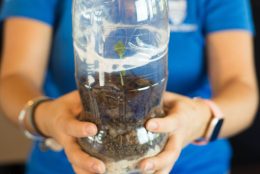
Participants will make their own terrarium while learning about how a self-sustaining enclosed environment mimics many functions of our own ecosystem. Participants will hike around the park collecting specific materials to add to their terrarium, such as a seedling, soil, sand, and gravel. They will learn about the water cycle as well as about nutrient cycling as they layer specific materials to build the terrain of their terrarium.
*Each child must bring a 2-liter bottle to make their own terrarium
Subject: Ecology, Marine Science
Grade: 1-8
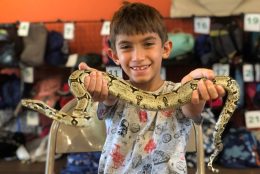
Participants will be introduced to some of the local wild life we have here at the Estate. They also will get to see some of the different invasive species we find in South Florida. Students will learn about these animals while having the opportunity to observe their characteristics and identify their key differences. Some of our animals include a red tail boa, king snake, rat snake, ball python, tarantula, and more.
Subject: Biology
Grade: K-12
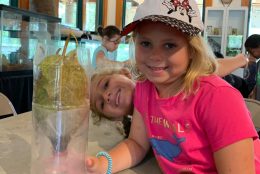
Participants will learn about the natural filtration process of water as it goes from surface water to ground water. They will explore how water is filtered naturally in nature to become drinkable. Through a hands on experiment the students will design their own natural water filtration made out of nature to determine what creates the cleanest water.
Note: This activity requires physical materials. Students will need their own scissors and water.
Subject: Ecology
Grade: 3-8
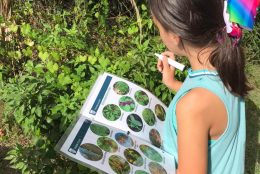
Participants will learn about the relationships that exist between people and plants. By virtually exploring our natural areas, the participants will make their own field guide to show how plants found within our local community have been used by past and present civilizations. In the end the participants will take home their own homemade field guide that describes these relationships between plants and people.
Subject: Ecology
Grade: 3-12
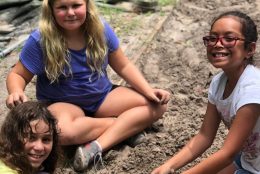
Participants will learn about the people and cultures that existed in South Florida before modern development. They will utilize critical thinking skills and hands-on discovery learning methods to uncover real artifacts/ fossils and their historic uses. Students will apply archaeological survey methods to discover bones, pottery, and artifacts from a culture that once thrived thousands of years ago.
Note: This activity requires physical materials.
Subject: Social Studies
Grade: K-8
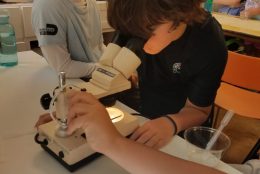
Participants will become an ocean engineer and marine biologist for the day as they design and build their own model planktons with different densities. Participants will also learn how important plankton are to the health of the ocean and test their designs by seeing how they float in water. Note: This activity requires physical materials. Students will need their own tape and scissors.
Students will also need a space to fill with water and test their designs (a sink, a deep container, a vase, a tub, etc.).
Subject: Marine Science, Engineering
Grade: K-8
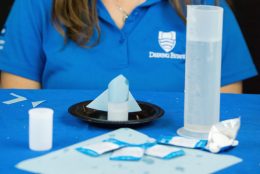
Participants will learn about the scientific method. Utilizing film canisters and other provided materials students will develop their very own rocket. With the scientific method they will come up with their own hypothesis on which design for their rocket will launch the highest. They will then launch their rockets to see if their hypothesis are correct. After each launch they will go back to the drawing board to make improvements and see who can get their rocket to launch the highest.
Note: This activity requires physical materials. Students will need their own tape and scissors and water. This experiment can also get messy when the rockets launch.
Subject: Physics
Grade: K-12
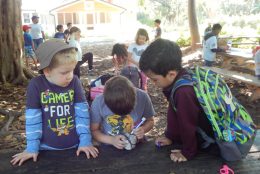
Participants will learn about the scientific method. Utilizing a plastic egg and other provided materials students will develop their very own protective case for their egg. With the scientific method they will come up with their own hypothesis on which design for their egg to be protected from breaking when dropped. They will then test their design to see if their hypothesis are correct. After each test they will go back to the drawing board to make improvements and see who can protect their egg the best.
Note: This activity requires physical materials. Students will need their own tape and scissors and water. This experiment can also get messy when the eggs drop.
Subject: Physics
Grade: K-12
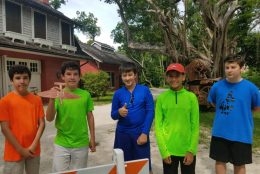
Participants will learn about the different wing designs of birds and how these designs give them a competitive advantage. Utilizing this knowledge and the scientific method the students will design their own set of wings and test to see how far they can make them fly. After each flight they will go back to the drawing board to make improvements and see who can get their wings to fly the farthest.
Note: This activity requires physical materials. Students will need their own tape and scissors.
Subject: Physics, Biology
Grade: K-12
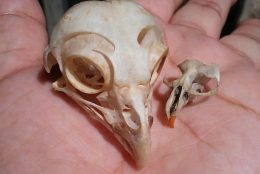
Participants will learn about Darwin’s Finches and the different beak adaptations they have. They will then be challenged to create their own beak designs that are best suited for gathering the chosen food sources. Using given materials they will modify the beaks to create the most efficient design for food collection. A competition will be held to see which group’s beak design can collect the most food in allotted time. Whoever has the most efficient beak design wins.
Note: This activity requires physical materials. Students will need their own tape and scissors.
Subject: Biology
Grade: K-8
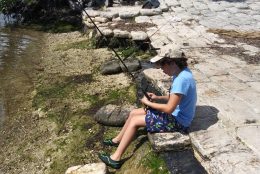
Participants will experience the “tragedy of the commons” as it relates to fishing resources. Through a fishing simulation, participants model several consecutive seasons of a commercial fishery and explore how technology, population growth, and sustainable practices impact fish catches and fisheries management.
Note: This activity requires physical materials.
Subject: Marine Science, Social Studies
Grade: 3-12
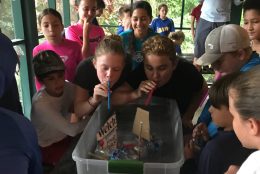
Participants will learn about the importance of alternative energy sources and learn about renewable vs non-renewable energy as they build their own wind powered turbines in a competition to see who can generate the most power.
Note: This activity requires physical materials. Students will need their own tape and scissors.
Subject: Physics
Grade: 3-12
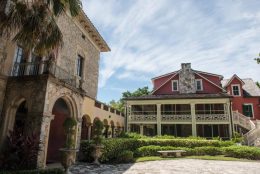
Take a tour and conduct a scavenger hunt of the Deering Estate’s historic buildings, including the Stone House and the Richmond Cottage, to find out how the Estate has changed hands, developed and grown since the first settlers built their houses here in South Dade.
Subject: Social Studies
Grade: K-12
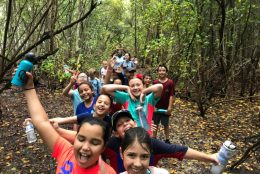
Join our naturalist staff for a hike through the Deering Estate’s protected natural areas, including a variety of distinct habitats. Along the way, learn about native plants and animals and the Cutler Burial Mound, a centuries-old significant Tequesta site and important archaeological site.
Subject: Environmental Science
Grade: K-12
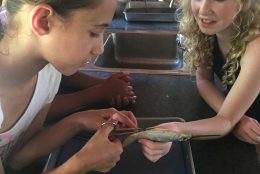
Participants will become professional ichthyologists, learning about the unique characteristics of various marine animals as well as their anatomy and physiology. After an introduction, they will be led in groups through a step-by-step dissection of a squid or fish allowing them to get a hands-on understanding of both the external and internal anatomy of these important marine animals.
Subject: Biology/Marine Science
Grade: 3-12
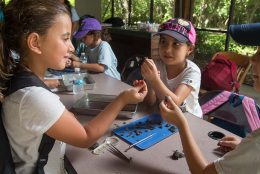
Participants will learn about food chains in ecosystems, and the role that owls play in South Florida ecology. By applying the Scientific Method, they will be able to uncover the mysteries of what lies within an owl pellet. Participants will dissect their own pellet using a dichotomous key to identify the bone fragments found inside the pellet.
Subject: Biology
Grade: K-8
Optional Add-On Activities for Field Trips
These options can be added onto the natural areas hike, as survey method activities.
Please note that this addition will add 30 minutes to the tour, bringing it closer to 2 hrs in length.
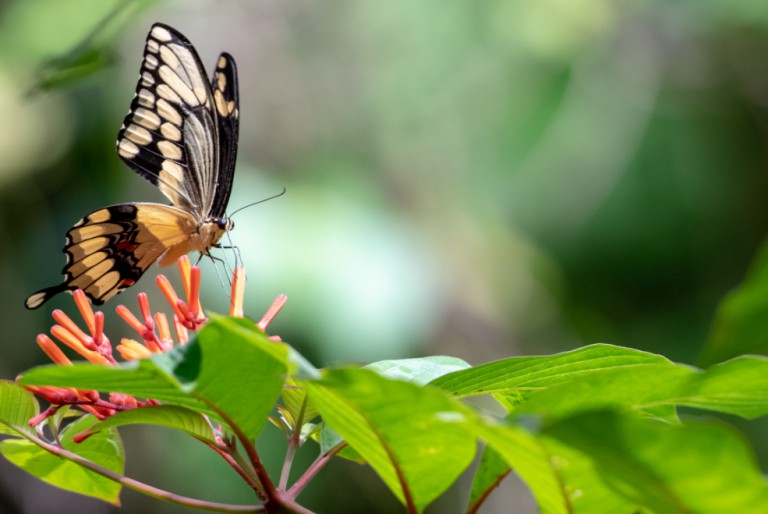
Participants will go out into natural areas to see how many different kinds of animals they can find. Depending on the option students will learn about the local species and where they live. They will get to see how these animals have adapted to living in certain habitats. Participants will go out and see how many of certain species they can find to determine population dynamics.
Note: Butterfly survey only available seasonally (March-November)
Subject: Biology, Ecology
Grade: 4-12
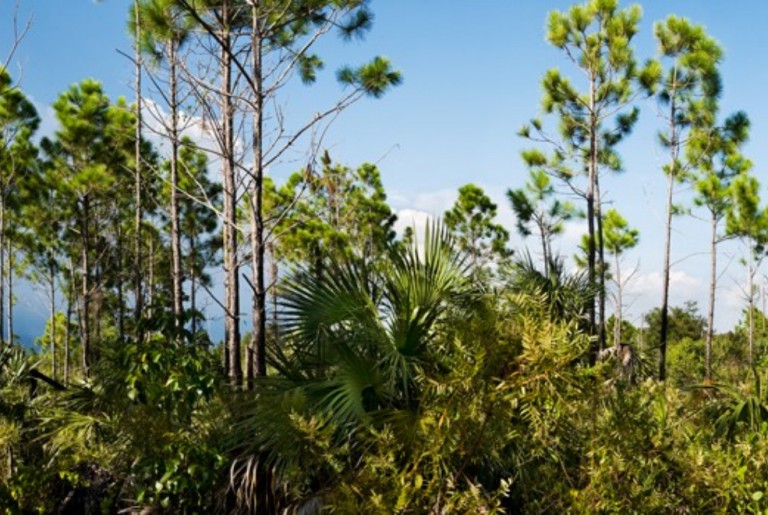
Students will go out into the pine rocklands to do their own plot survey. Through this method they will learn what biodiversity is and why it is important. Utilizing the scientific method they will develop their own plot survey to measure biodiversity, identify different fauna and animals, and record their own scientific data. In the end they will be able to calculate biodiversity within our pine rocklands.
Subject: Biology, Ecology
Grade: 7-12
Field Trip FAQs
Field Trip Activity Selection
A Field Study Trip consists of two, hour-long activities. It is recommended to select one (1) Field Study Activity and one (1) Tour/Hike (listed above). If you are unsure of the greatest selections for your group, our representatives can provide guidance in choosing the activities that best meet your students’ needs and interests.
Program Timing and Size
Programs are scheduled in a 3 hour block between 10:00 AM and 1:00 PM. However, these times are flexible and groups are welcome to stay the day until 4:00 PM after their program has concluded.
Our programs can accommodate a minimum of 20 and a maximum of 175 participants per day. If your group does not meet one of these requirements, please consult with our staff as alternative options may be available.
Costs and Participant Ratios for Field Trips
Our Field Study programs cost $10 per child participant.
For land-based programs, we allow one (1) free adult chaperone for every ten (10) students. For water-based programs, a ratio of one (1) free adult chaperone for every six (6) students is required. Any adults beyond these ratios will be required to pay the standard adult admission to the park.
How far in advance do I need to book my field trip?
Reserving early is recommended because our availability and dates fill up quickly as we strive to serve a wide array of public, private, and alternative home school visitors.
Do You Have a Recommended Field Trip Reservation Checklist?
- Select your two desired Field Study activities
- Select a few desired dates for Field Study Trip
- Determine Group Size
- Reserve Early!
How Do I Reserve a Field Trip in Miami?
To book your group’s visit, please call (305) 235-1668 x.264. Be prepared to provide your group’s information, as well as your selected activities and desired dates. We strive to serve a wide array of public, private and alternative home school visitors, so our available dates tend to fill up quickly. Our staff will be happy to assist you in designing the best Field Study Trip for your needs.
Once you have made your reservation, please check your email for a confirmation letter. This notice will include your finalized date time and cost, as well as additional instructions specific to your chosen program. Your program is not reserved until you receive this reservation. Please call our office if you don’t receive a confirmation within 48 hours of your booking.
If your group has any special needs, please let us know at the time of booking. We will be happy to accommodate your request.
If your needs should change after reservation, including the number of participating students or any cancellations, please contact us as soon as possible so we can update your reservation. Changes must be made at least 48 hours prior to your visit, otherwise you will be charged based on original reservation.
Preparing For Your Visit:
- All youth and adult field trip participants must wear closed toe shoes (no crocs, flip flops, etc)
- Bring a re-useable water bottle, bugspray, hat and sunscreen
- Please bring a change of clothes if participating in a water-based activity
- All chaperones are expected to fully participate in the program, including water-based activities
- No food is available for purchase on property, participants must come with lunches.
Do You Offer Homeschool Programs as Well as Field Trips?
Yes, we provide a number of homeschool enrichment programs that focus on our natural resources and conservancy. These are different than field trips however and would be organized separately.
Get in Touch
Contact Us to Ask a Question or Schedule Your Field Trip
Need more information? Simply fill out our inquiry form below and we will get back to you.
Contact our programs director, Christopher Bumpus, at (305) 235-1668 (Option 3) / [email protected]





